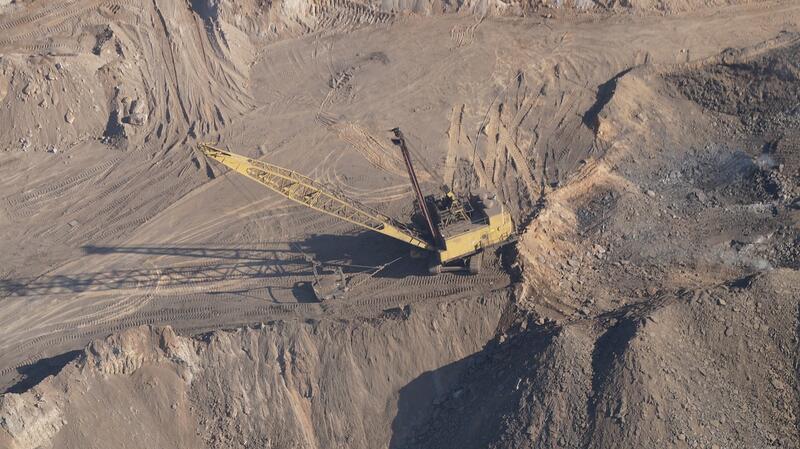Innovative Solutions for Decarbonizing Mining of non-ferrous metal ores
This article discusses innovative solutions for reducing the carbon footprint of mining non-ferrous metal ores, including electrification, renewable energy, and circular economy practices.

The mining of non-ferrous metal ores is a crucial sector that contributes significantly to the global economy. It involves the extraction of metals such as copper, gold, silver, and aluminum, among others. However, the mining process is associated with significant carbon emissions that contribute to climate change. Decarbonisation in the mining of non-ferrous metal ores sector refers to reducing carbon emissions associated with the mining process. This article explores the importance of decarbonisation in the mining of non-ferrous metal ores sector, the main sources of carbon emissions, ways to reduce carbon emissions, challenges facing decarbonisation, and the implications of decarbonisation for the sector.
Importance of Decarbonisation in Mining of Non-Ferrous Metal Ores Sector
The mining of non-ferrous metal ores is a significant contributor to global carbon emissions. According to the International Energy Agency (IEA), the mining sector accounts for approximately 4% of global greenhouse gas emissions. The sector's carbon emissions come from various sources, including energy consumption, transportation, and emissions from the extraction process. Decarbonisation in the mining of non-ferrous metal ores sector is essential to mitigate the impacts of climate change. It is also crucial for the sector's sustainability, as it can help reduce operational costs and improve the industry's social license to operate.
Reducing Carbon Emissions in Mining of Non-Ferrous Metal Ores Sector
Reducing carbon emissions in the mining of non-ferrous metal ores sector involves various strategies. One of the main ways to reduce carbon emissions is to increase energy efficiency. The mining process requires significant amounts of energy to power equipment and machinery. Therefore, improving energy efficiency can help reduce energy consumption and, consequently, carbon emissions. This can be achieved through the use of renewable energy sources such as solar, wind, and hydropower.
Another way to reduce carbon emissions is to optimize the extraction process. The extraction process involves the use of chemicals such as cyanide and sulfuric acid, which contribute significantly to carbon emissions. Therefore, developing more environmentally friendly extraction methods can help reduce carbon emissions. For example, using bioleaching to extract metals can reduce carbon emissions significantly.
Additionally, reducing transportation emissions can help reduce carbon emissions in the mining of non-ferrous metal ores sector. The transportation of materials, equipment, and personnel contributes significantly to carbon emissions. Therefore, reducing transportation emissions can be achieved by optimizing transportation routes, using electric vehicles, and reducing the need for transportation through on-site processing.
Challenges Facing Decarbonisation in Mining of Non-Ferrous Metal Ores Sector
Despite the importance of decarbonisation in the mining of non-ferrous metal ores sector, several challenges hinder its implementation. One of the main challenges is the high cost of implementing decarbonisation strategies. Implementing renewable energy sources and optimizing the extraction process requires significant capital investment, which may not be feasible for some mining companies.
Another challenge is the lack of technological advancements in decarbonisation strategies. The mining sector is traditionally conservative and slow to adopt new technologies. Therefore, the lack of technological advancements in decarbonisation strategies may hinder their implementation.
Furthermore, the mining sector's regulatory environment may not be conducive to decarbonisation. Some countries may have lax environmental regulations, which may not incentivize mining companies to implement decarbonisation strategies.
Implications of Decarbonisation for Mining of Non-Ferrous Metal Ores Sector
Decarbonisation in the mining of non-ferrous metal ores sector has significant implications for the industry. One of the main implications is the potential reduction in operational costs. Implementing renewable energy sources and optimizing the extraction process can help reduce energy consumption and, consequently, operational costs. This can improve the industry's profitability and sustainability.
Another implication is the improvement in the industry's social license to operate. The mining sector is often associated with negative environmental impacts, such as deforestation, water pollution, and carbon emissions. Implementing decarbonisation strategies can help reduce these impacts and improve the industry's social license to operate.
Furthermore, decarbonisation in the mining of non-ferrous metal ores sector can contribute to global efforts to mitigate climate change. The mining sector is a significant contributor to global carbon emissions. Therefore, reducing carbon emissions in the sector can help mitigate the impacts of climate change.
Conclusion
Decarbonisation in the mining of non-ferrous metal ores sector is essential to mitigate the impacts of climate change and improve the industry's sustainability. The main sources of carbon emissions in the sector include energy consumption, transportation, and emissions from the extraction process. Reducing carbon emissions can be achieved through various strategies, including increasing energy efficiency, optimizing the extraction process, and reducing transportation emissions. However, several challenges hinder the implementation of decarbonisation strategies, including high costs, lack of technological advancements, and regulatory environments. The implications of decarbonisation for the mining of non-ferrous metal ores sector include potential reductions in operational costs, improvement in the industry's social license to operate, and contribution to global efforts to mitigate climate change.